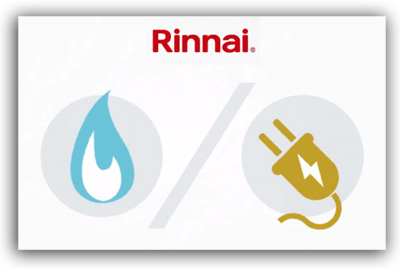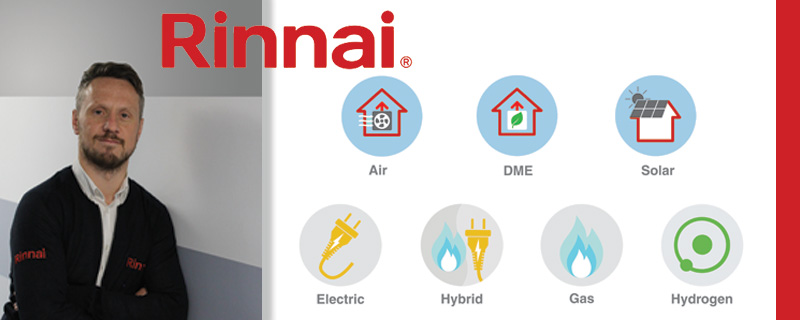SPAIN, GERMANY & ITALY REPURPOSING GAS NETWORKS CAPABLE OF CARRYING HYDROGEN
Chris Goggin reports on how European economies such as Spain, Italy and Germany are working towards phasing out fossil fuels and repurposing their domestic gas networks & distribution systems to accommodate other fuels including hydrogen.
Natural gas is still the predominant method of heating buildings and hot water provision across Europe. The UK, Spain, Germany, and Italy are economies that use substantial amounts of both natural gas and oil.
Each country has ambitious and binding decarbonisation targets and large functioning gas networks. What happens to domestic gas infrastructure once natural gas is fully phased out is a problem that each country is attempting to solve.
Italy, Germany, and the UK are the biggest natural gas markets in Europe whilst Spain uses natural gas as an integral part of its domestic energy mix. All four countries – UK, Spain, Italy, and Germany share similarities in population and building stock.
Spain has more than twenty-five million residential properties that houses a population just under fifty million. Italy maintains a population of just under sixty million and 26.2 million residential properties. UK population sixty-seven million and has a building stock of over twenty-five million. Germany holds a population of eighty-three million German and 42.5 million residential and non-residential properties.
Spain’s gas transmission network is comprised of 13,361 km of pipeline and is operated by Spain’s largest privatised natural gas distributor Enagas. Spain maintains significant energy security as supply is covered via a main Algeria route, providing an immediate alternative to Russian gas. Spain, however, consumes copious amounts of natural gas and relies on imports to satisfy domestic demand.
A majority of Italy’s gas network is owned by Snam an independent company. Snam operates a nationwide pipeline network of 32,000 km in length and supplies around 95% of the Italian market. Società Gasdotti Italia is the second largest transporter of natural gas in Italy, operating a length of pipeline network of around 1,300 km in length, in southern Italy.
Germany’s natural gas transmission network has a total length of 511,000 km and its ownership is currently unclear. There have been multiple reports stating that major national German energy suppliers such as Uniper could become state owned. Doing so would nationalise gas supply making natural gas dispersal less problematic in times of crises.
Italian and German natural gas provision is still heavily reliant on outside exports from Russia. Although actively phasing out Russian gas imports both countries are yet to stop importing Russian gas due to national requirement.
Without natural gas all mentioned countries will possess thousands of kilometres of unemployed subterranean pipelines. What will each country do with these many miles of unused infrastructure? There is some evidence suggesting that big business and EU states are interested in purchasing gas infrastructure in anticipation of future widespread hydrogen usage.
Italy’s major gas supplier Snam has recently acquired a 49.9% stake in gas pipeline infrastructure. Snam paid Eni €385 million to connections in pipelines that reach into Algeria and the Tunisian coast all connecting natural gas supplies to Italy.
These connections will give Snam access to a region that could become a future hub of solar produced green hydrogen production. Snam appear to be positioning themselves in favour of future hydrogen dispersal between Europe, Northern Africa, and the Mediterranean.
The German federal government is in discussions with the EU regarding the purchasing viability of purchasing German gas network operator Wiga who are valued at around €3 billion to €4 billion. Wiga are already 50% owned by a state-owned organization SEFE (Securing Energy for Europe) and operate a pipeline network of over 4,000 km (2,485 miles).
Aims within the updated German National Hydrogen Strategy could be achieved through repurposing all current Wiga pipework to transport hydrogen. Doing so will enable the establishment of a national hydrogen network capable of dispersing hydrogen energy for commercial or domestic usage.
Main Spanish gas grid operator Enagas have also purchased a stretch of gas infrastructure from Spanish gas company Reganosa. Enagas acquired 130 km of gas pipeline for around €54 million. Enagás will use this transmission infrastructure which shares a connection to Portugal to fully integrate renewable hydrogen production and distribution by 2030 within the region.
As the UK operates 7,630 km of pipework that acts as a supplier of heat and energy into 25 million UK properties, UK energy policy is yet to outline how, or if, current natural gas infrastructure will be used in future power distribution. Continental economies have plans for hydrogen distribution using adapted gas infrastructure whilst UK policy is still unclear.
Although each country will have to find decarbonising solutions applicable to their own energy requirements, geographical positioning and production capabilities, UK decision makers may have to include hydrogen as an energy resource due to the amount of work that has been completed by major EU economies.
Rinnai is committed to equipping customers, installers, specifiers, and system designers with updated and detailed information concerning domestic and international energy policy that may affect current or future purchasing options.
CLICK HERE TO VISIT THE RINNAI WEBSITE
or HERE to EMAIL RINNAI
CLICK HERE For more information on the RINNAI product range

RINNAI’S H3 DECARBONISATION OFFERS PATHWAYS & CUSTOMER COST REDUCTIONS FOR
COMMERCIAL, DOMESTIC AND OFF-GRID HEATING & HOT WATER DELIVERY
Rinnai’s H3 range of decarbonising products include hydrogen / BioLPG ready technology, hybrid systems, and a wide range of LOW GWP heat pumps and solar thermal. Also, within Rinnai’s H3 range is Infinity hydrogen blend ready and BioLPG ready continuous flow water heaters which are stacked with a multitude of features that ensure long life, robust & durable use, customer satisfaction and product efficiency.
Rinnai’s range of decarbonising products – H1/H2/H3 – consists of heat pump, solar, hydrogen in any configuration, hybrid formats for either residential or commercial applications. Rinnai’s H3 range of products offer contractors, consultants and end users a range of efficient, robust and affordable decarbonising appliances which create practical, economic and technically feasible solutions. The range covers all forms of fuels and appliances currently available – electric, gas, hydrogen, BioLPG, rDME solar thermal, low GWP heat pumps and electric water heaters.
Rinnai H1 continuous water heaters and boilers offer practical and economic decarbonization delivered through technological innovation in hydrogen and renewable liquid gas ready technology.
Rinnai’s H1 option is centred on hydrogen, as it is anticipated that clean hydrogen fuels will become internationally energy market-relevant in the future; Rinnai water heaters are hydrogen 20% blends ready and include the world’s first 100% hydrogen-ready hot water heating technology.
Rinnai H2 – Decarbonization simplified with renewable gas-ready units, Solar Thermal and Heat Pump Hybrids. Rinnai H2 is designed to introduce a practical and low-cost option which may suit specific sites and enable multiple decarbonisation pathways with the addition of high performance.
Rinnai H3 – Low-GWP heat pump technology made easy – Rinnai heat pumps are available for domestic and commercial usage with an extensive range of 4 – 115kW appliances.
Rinnai’s H3 heat pumps utilise R32 refrigerant and have favourable COP and SCOP.
Rinnai is a world leading manufacturer of hot water heaters and produces over two million units a year, operating on each of the five continents. The brand has gained an established reputation for producing products that offer high performance, cost efficiency and extended working lives.
Rinnai’s commercial and domestic continuous flow water heaters offer a limitless supply of instantaneous temperature controlled hot water and all units are designed to align with present and future energy sources. Rinnai condensing water heaters accept either existing fuel or hydrogen gas blends. Rinnai units are also suited for off-grid customers who require LPG and BioLPG or rDME.
Rinnai products are i2HY20 certified, A-rated water efficiency, accessed through multiple fuel options and are available for purchase 24/7, 365 days a year. Any unit can be delivered to any UK site within 24 hours. Rinnai offer carbon and cost comparison services that will calculate financial and carbon savings made when investing in a Rinnai system. Rinnai also provide a system design service that will suggest an appropriate system for the property in question. Rinnai offer comprehensive training courses and technical support in all aspects of the water heating industry including detailed CPD’s. More information can be found on Rinnai’s website and its “Help Me Choose” webpage.








Leave a Reply
Want to join the discussion?Feel free to contribute!